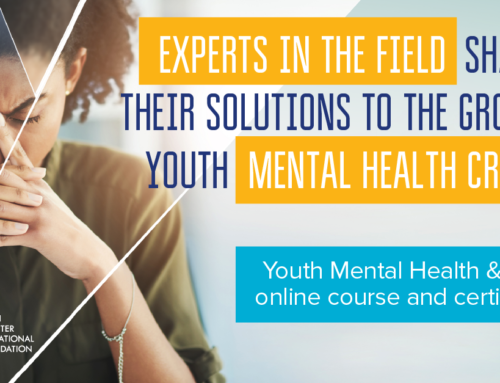
-From the President’s Desk-
By Melvin Adams
—
During the 1990s, I lived in Eastern Europe in a country coming out of the long grip of the USSR (United Soviet Socialist Republic). One word pretty much described the society:
Devastation.
Poverty was everywhere, and people were coping however possible. Public alcoholism was rampant, and a huge portion of the population was taking prescribed and illicit medication. People were sedated and apathetic. It was a tragic situation to see.
But we have seen a significant increase in the use of pharmaceuticals in this country in recent years. Perhaps most alarming is the wholesale medication of school-aged children. Would it be fair to say that we are dumbing down education for a dumbed-down student community?
Something about that formula doesn’t point to success and achievement—or a bright future.
In an article posted in Esquire on March 27, 2014, titled Drugging of the American Boy, the author states:
“By the time they reach high school, nearly 20 percent of all American boys will be diagnosed with ADHD…If you have a son who has been diagnosed, it’s more than likely that he has been prescribed a stimulant…[which are classified as] Schedule II drugs, defined as having a ‘high potential for abuse’ and ‘with use potentially leading to severe psychological or physical dependence.'”
The article then lists several debilitating or life-threatening side effects of these stimulants and continues,
“Now imagine that [your son] is suffering like this because of a mistake. Because a doctor examined him for twelve minutes, looked at a questionnaire on which you had checked some boxes, listened to your brief and vague report that he seemed to have trouble sitting still in kindergarten, made a diagnosis for a disorder the boy doesn’t have and wrote a prescription for a powerful drug he doesn’t need.”
Though the article was written several years ago, it is still a good read for any parent concerned about the well-being of their child. This more recent article published in Psychology Today also challenges the rampant acceptance of ADHD diagnoses in medical circles.
Several years ago, we were told that one of our children had symptoms of ADHD. He was an energetic, curious, bright child who became bored quickly if he was not being challenged mentally. The school felt that he needed to be medicated to assist him in learning. We refused. Years later, after graduating early, he went into the Marine Corps where he served with distinction. Testing during that time revealed that he had an IQ of 132. He now serves as a state representative at 30 years of age.
Parents, I hope you will think about your responsibility to your child’s well-being and not automatically assume that a school-based diagnosis is accurate. Often, it is not in a child’s best interest to be sedated for most of their formative years. A hasty or prejudiced “label” could set them back in immeasurable ways.
Some children may benefit from limited and controlled medical support, but it is concerning that, too often, medication is used to subdue healthy, active children so that they are easier to manage at school… and sometimes even at home. When schools get paid more for children with special diagnoses, too many children simply serve the system rather than the system serving and protecting them.
Are there healthier options? Absolutely.
Resources:
The Drugging of the American Boy | Esquire
ADHD Is Now Widely Overdiagnosed and for Multiple Reasons | Psychology Today
About the Author:
President/Founder of Noah Webster Educational Foundation
Melvin Adams has almost 40 years of experience in educational leadership. Born in Africa to parents serving as Christian missionaries, he was homeschooled in his early years, then attended a British school during his high school years before going to the U.S. to begin his college studies. He took his first teaching job in 1982.
Since then, he has served on the teaching faculty and in the administration of several schools and colleges in the U.S. and started and led a college in Ukraine from 1993-2000. From 2008-2016, he helped to found and lead Renewanation, a faith-based non-profit organization with a focus on education. In 2016, he served on the Presidential Transition Team as a Senior Advisor on Education.
His international experience and his work in the private non-profit sector have helped to shape his perspectives on education. He lives in Virginia with his wife Sandy. They have six children and seventeen grandchildren.






[…] this disbelief stems from skepticism surrounding the real problem of over-diagnosis or a misunderstanding of the seriousness of legitimate learning struggles, this reaction from […]